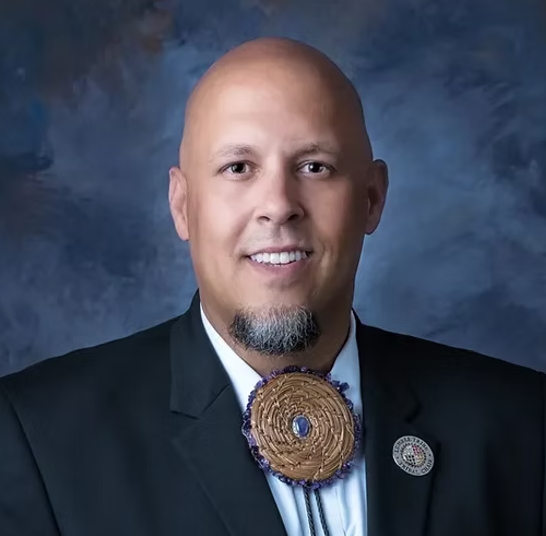
Photo: Lumbee Chairman John Lowery testified before US Senate testified for Lumbee Federal Recognition
On November 5, 2025, the U.S. Senate Committee on Indian Affairs held a legislative hearing on S. 107, the Lumbee Fairness Act, marking the first Senate discussion of Lumbee federal recognition since 2021. The hearing, chaired by Sen. Lisa Murkowski (R-Alaska), drew a large crowd, requiring a move to a bigger room in the Dirksen Senate Office Building, and highlighted bipartisan support amid ongoing opposition from some federally recognized tribes.
The Lumbee Tribe of North Carolina, with over 60,000 members primarily in Robeson and surrounding counties, is the largest Native American tribe east of the Mississippi River and the ninth-largest in the U.S. State-recognized since 1885, the tribe has pursued full federal recognition for nearly 140 years. In 1956, Congress passed the Lumbee Act, acknowledging the tribe but denying access to federal benefits under the Indian Termination Era policies—a "cruel" caveat that left them in legal limbo, according to supporters.
S. 107, reintroduced in January 2025 by Sens. Thom Tillis (R-NC) and Ted Budd (R-NC) with 18 cosponsors, aims to amend the 1956 Act and grant full recognition, making Lumbee members eligible for Bureau of Indian Affairs, Indian Health Service, and other federal programs. The bill has passed the House multiple times, most recently in December 2024 by a 311-96 vote, but stalled in the Senate.
Key Testimonies and Support
Bipartisan backing was evident, with endorsements from President Trump (who promised recognition during his 2024 campaign and issued supportive actions in 2025), former President Biden, and North Carolina's delegation. A pre-hearing press conference featured Tillis, Budd, and Lumbee leaders urging action.
Opposition and Concerns
Opposition centered on bypassing the Bureau of Indian Affairs' Office of Federal Acknowledgment (OFA) process, which critics argue ensures rigorous proof of continuous tribal existence and ancestry.
The hearing record remains open for two weeks for additional submissions, with no immediate vote. Proponents see momentum from Trump's support and bipartisan unity, while opponents insist on administrative review. The debate underscores broader tensions in federal tribal recognition, balancing historical inequities with procedural integrity.
